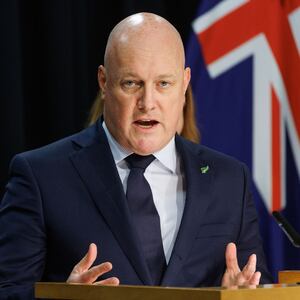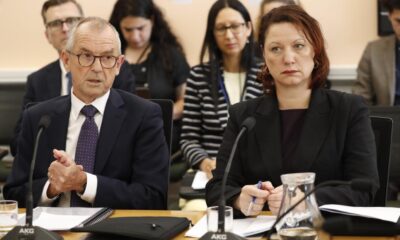Politics
Government Unveils $230 Million Medical School at Waikato University

The Government has announced the establishment of a new medical school at the University of Waikato, with an investment of **$230 million**. This initiative follows commitments made by the National Party during the **2023 election**, where they campaigned on the promise of building a new medical school. The decision to proceed with the project comes after a coalition agreement with the Act Party, which stipulated that any establishment of the school would depend on a thorough business case.
On **Monday**, Health Minister **Simeon Brown** and Universities Minister **Shane Reti** confirmed that the Cabinet had approved the business case for the new school. “Cabinet has approved the business case for the new school, which will have a strong focus on primary care and rural health,” Brown stated. He highlighted the significant financial backing, which includes **$82.85 million** from the Government and over **$150 million** from the University, in addition to philanthropic investments. This allocation represents a major commitment to education and regional development in the Waikato region.
Construction and Future Prospects
Brown indicated that with the green light received, the University of Waikato is set to commence construction on new teaching facilities later this year. The new medical school is expected to enhance opportunities for students wishing to study medicine in New Zealand. Starting in **2028**, the school will provide **120 medical training places** each year. This expansion complements the **100 additional medical training places** being added across the University of Auckland and University of Otago during the current Government’s term.
The proposal for a new medical school has not been without controversy. During the election campaign, the Labour Party expressed opposition to establishing a new medical institution, preferring instead to focus on increasing enrollment in existing medical schools. This divergence of views reflects ongoing debates about how best to address healthcare education and workforce needs in New Zealand.
The announcement marks a significant step in bolstering medical education and aims to address regional health challenges by prioritizing primary care and rural health training. As the project progresses, it will undoubtedly shape the future of medical education in New Zealand, providing a pathway for more students to enter the healthcare sector.
-

 World2 weeks ago
World2 weeks agoPrivate Funeral Held for Dean Field and His Three Children
-

 Top Stories2 weeks ago
Top Stories2 weeks agoFuneral Planned for Field Siblings After Tragic House Fire
-

 Sports3 months ago
Sports3 months agoNetball New Zealand Stands Down Dame Noeline Taurua for Series
-

 Entertainment3 months ago
Entertainment3 months agoTributes Pour In for Lachlan Rofe, Reality Star, Dead at 47
-

 Entertainment2 months ago
Entertainment2 months agoNew ‘Maverick’ Chaser Joins Beat the Chasers Season Finale
-

 Sports3 months ago
Sports3 months agoSilver Ferns Legend Laura Langman Criticizes Team’s Attitude
-

 Sports1 month ago
Sports1 month agoEli Katoa Rushed to Hospital After Sideline Incident During Match
-

 World3 weeks ago
World3 weeks agoInvestigation Underway in Tragic Sanson House Fire Involving Family
-

 Politics2 months ago
Politics2 months agoNetball NZ Calls for Respect Amid Dame Taurua’s Standoff
-

 Top Stories2 weeks ago
Top Stories2 weeks agoShock and Grief Follow Tragic Family Deaths in New Zealand
-

 Entertainment3 months ago
Entertainment3 months agoKhloe Kardashian Embraces Innovative Stem Cell Therapy in Mexico
-

 World4 months ago
World4 months agoPolice Arrest Multiple Individuals During Funeral for Zain Taikato-Fox




















